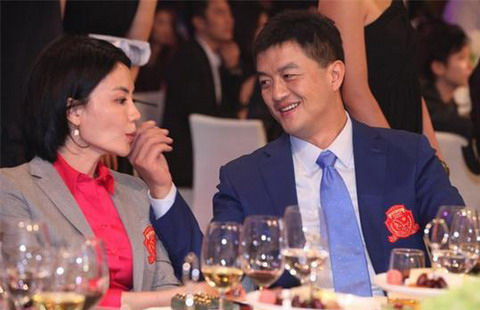An example of passing on wrong values
By Liu Xiuying (China Daily) Updated: 2014-12-19 07:39Liu Tienan, former vice-minister of the National Development and Reform Commission and former chief of the National Energy Administration, was sentenced to life for abuse of power on Dec 10. Some observers have blamed Liu Tienan's son, Liu Decheng who also faces trial, for his fall, because the senior Liu received most of the bribes through his son. But Liu Tienan has admitted that he is fully responsible for his son's crimes.
It was under influence of his father's words and deeds that Liu Decheng learned the false values of life. As the junior Liu recalled, every time he visited his grandparents, he was reminded by his father to take the shortcut instead of the normal route, and also encouraged to choose shortcuts in life to "climb up" the social ladder to lead a more prosperous life. Liu Decheng also developed the idea at a very young age that money was omnipotent and one could buy everything with money.
Children learn values through everyday interactions with their parents. Parents not only bring their offspring into this world but also pass their own understandings and philosophy of life to them, both knowingly and unknowingly. This is part of the social inheritance of their children.
Among all elements of social inheritance, parents influence their children most in terms of values. Values are the medium through which people form opinions on the significance of their surroundings, from animate and inanimate beings to material and non-material objects. Values not only determine the reasons that people live for, but also serve as the standards to tell right from wrong.
A survey conducted by the China Youth and Children Research Center on family values and education shows that most of the values that children develop are similar to those that their parents cherish. For example, the survey results show that the children who accord top priority to personal qualities like patriotism, filial piety and honesty are inspired by their parents. About 51.4 percent of the parents who responded to the survey agreed that "if I were a supervisor, I would take more care of my subordinates" while three out of every 10 children said "if I were a class leader, I would look after those who support me more in class work".
However, many parents have psychological resistance against cultivating correct values in their children because they regard it as something like brainwashing and taking advantage of their children. What they don't understand is that values are like a beacon in children's individual development and determine the path they would choose in the future, what kind of person they would become and the way they would pursue happiness.
Therefore, when it comes to passing on values to children, parents have to fulfill their responsibility. Take Liu Tienan's case for instance. On the question of pursuing happiness, his idea of "taking the shortcut" to success is a false value that he nurtured and passed on to his son. Contrary to Liu Tienan's belief, educator Zhou Guoping says the first goal in life should be to become an excellent rather than a successful person. A person who excels in a field or fields, even if not successful in terms of earning money, can still live a meaningful life. In other words, a person who pursues excellence is more likely to live in harmony with others.
One of the many important characteristics of family education is that parents should teach children the important values of life on every occasion they get. But while communicating with children, parents should also discuss the problems, rather than only cramming their minds with high-sounding words and terms. More importantly, parents have to help children understand what they say.
The author is director of the family research center at the China Youth and Children Research Center.











